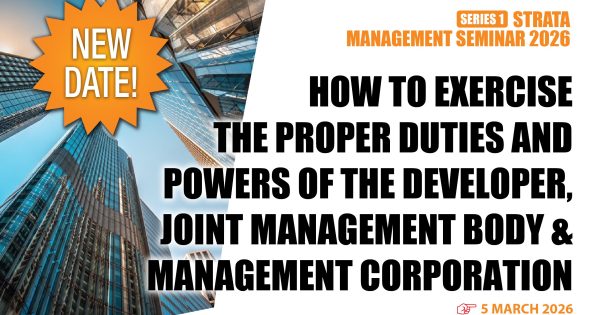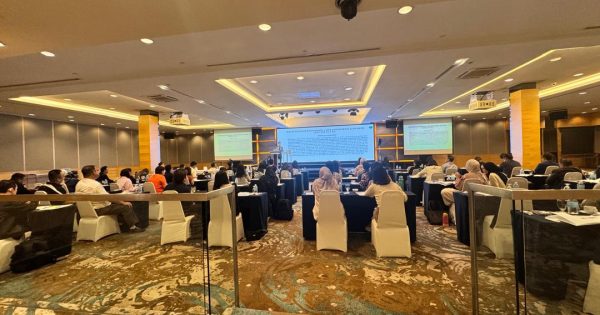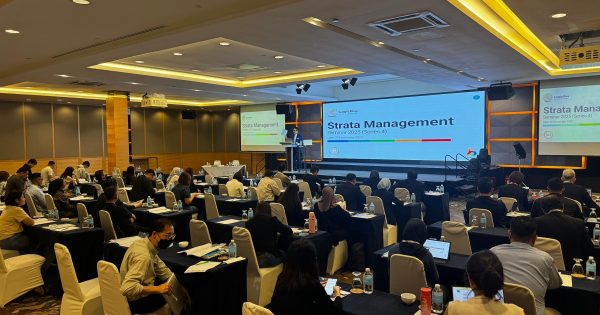
Pesuruhjaya Bangunan Majlis Bandaraya Pulau Pinang v. Perbadanan Pengurusan Mar Vista Resort [2025] 1 CLJ 555 (Civil Appeal No.: P-01(A)-194-04-2023) (CA)
FACTS OF THE CASE
This appeal concerned a question of law, whether a Commissioner of Buildings (“COB”) is empowered under the Strata Management Act 2013 (“SMA 2013”) to allow the adjournment of a strata scheme’s Annual General Meeting (“AGM”). Following a fight that broke out during the 8th AGM of the Perbadanan Pengurusan Mar Vista Resort (“MC”) on 22 May 2022, the respondent, MC wrote to the appellant, Pesuruhjaya Bangunan Majlis Bandaraya Pulau Pinang (“COB”) requesting a 12 months postponement of the AGM for safety reason. The COB rejected the request in two letters dated 7 June 2022 (“Impugned Decision 1”) and 30 June 2022 (“Impugned Decision 2”), stating that the SMA 2013 contained no provision empowering the COB to grant such an adjournment and directing the MC to convene its AGM within one month from 30 June 2022.
DECISION OF THE HIGH COURT
The MC subsequently filed a judicial review application to challenge the Impugned Decision 1 and Impugned Decision 2. The learned High Court Judge allowed the application on the grounds of illegality, irrationality and procedural impropriety, and accordingly declared the COB’s decisions invalid and void. The learned High Court Judge reasoned that the State Authority’s powers under Section 1(7) SMA 2013 to suspend provisions of the Act could be lawfully exercised by the COB as the State Authority’s delegate under Section 4(1) SMA 2013. On this interpretation, His Lordship concluded that the COB has the power to allow the adjournment of the 8th AGM of the MC.
DECISION OF THE COURT OF APPEAL
On appeal, the Court of Appeal overturned the High Court’s decision on the following grounds:
- Section 4(1) SMA 2013 empowers the State Authority to appoint a COB for administering and carrying out the Act. In this case, the COB was appointed under this provision for the local authority area of Majlis Bandaraya Pulau Pinang. The COB’s powers are limited to what is delegated by the State Authority, namely the administration and implementation of the SMA 2013 within that local authority area;
- Pursuant to Section 1(7) SMA 2013, only the State Authority may suspend provisions of the Act, and only if it forms the opinion that doing so would not be contrary to the public interest and the interests of the purchasers. This requirement for the State Authority to form an opinion is personal and is non-delegable;
- Nowhere in the SMA 2013 provides that such a power may be delegated to the COB;
- It is a cardinal principle of statutory interpretation that the Court should not add words to statutes where there are none. In construing a statute, the Court’s duty is limited to interpreting the words used by the Parliament in the Act and to giving effect to the said words;
- The Court of Appeal further stressed that the SMA 2013 is social legislation intended to protect the interests of the public and the purchasers in strata schemes;
- Therefore, the Court of Appeal found that the State Authority cannot delegate to the COB its power under the SMA 2013 to suspend the Act or its provisions, including allowing an adjournment of a strata scheme’s AGM.
KEY TAKEAWAY
The key takeaway from this case is that the COB does not have the power under the SMA 2013 to adjourn or postpone the holding of AGMs. The power to suspend the Act or any of its provisions lies solely with the State Authority and is non-delegable. This decision provides clarity on the interpretation of the SMA 2013 and reinforces statutory safeguards that protect the rights of parcel owners in strata developments.


